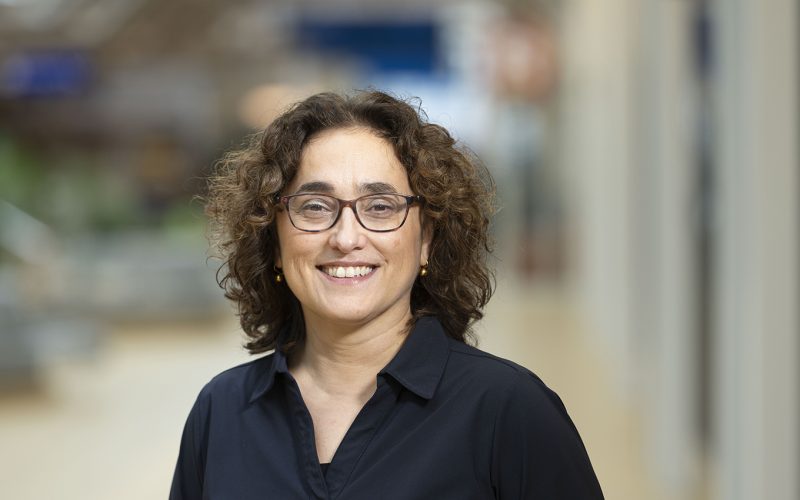Gönül Dilaver, professor of Inclusive Higher Education at UMC Utrecht, held her oration titled ‘Wiser together – The power of different perspectives in education and science’.
“You are a biomedical scientist, right? Then how do you end up as a professor of Inclusive Education?” Gönül Dilaver gets that question regularly. And it is not surprising: her career once started as a cell biologist, specialising in cooperation between cells under the microscope. Since then, she has instead taken a magnified look at cooperation between people – and how different perspectives come together in education and science.
Gönül called for structural innovation in higher education: not only to do justice to the diversity of students, but also to strengthen science itself. “Education and science are not separate worlds,” she argued. “They strengthen each other – but only if there is room for different voices.”
This is necessary, she stresses, because scientific knowledge is not as universal as is often assumed. In her oration, she gave numerous examples of one-sided assumptions in research. For instance, for years medical research was conducted almost exclusively on male subjects, so diseases like endometriosis or female symptoms of cardiovascular disease remained under the radar for a long time. Even today, only a small proportion of studies take gender differences into account – with direct implications for women’s health.
But the blind spots extend beyond gender. For example, Gönül pointed out how skin colour plays a role in disease recognition: on dark skin, the red circle of Lyme disease looks different than on light skin, leading to missed diagnoses. In dermatology textbooks, only 3% of images are of pigmented skin, research she conducted with colleagues showed.
And in the fast-growing world of artificial intelligence, she sees similar patterns. AI systems are often trained on data mainly from white men, with the result that facial recognition recognises black women much less well. Gönül cites the example of a student who, during an online exam, was simply told, ‘No face found.’ Her face, with a dark complexion, was not recognised by the software.
According to Gönül, these are not incidents, but symptoms of a deeper problem: a scientific system in which certain perspectives are structurally missing. ‘Science thrives on diversity,’ she argues. ‘Not only from the point of view of justice, but also because it leads to better insights.’ She refers to Joseph Henrich’s book The WEIRDest People in the World, which shows that almost all psychological research is based on only a small, relatively homogeneous part of the world’s population. Science, according to Gönül, must therefore be broadened – not to replace existing knowledge, but to complement and deepen it.
In her work as a professor, Gönül works on educational innovation founded on three pillars: representation, acceptance and education. These pillars are inextricably linked. Students must be able to recognise themselves in their lecturers, feel welcome within the academic world and be challenged to critical reflection.
Among other things, they set up the Inspirational Stories for Young Scientists project, in which students themselves look for scientific role models. She investigated how a sense of ‘belonging’ is related to academic success, and developed programmes with colleagues that help first-year students feel at home at university. ‘A lecturer can make a big difference,’ says Gönül, thinking back to her own student days, when female professors were still rare.
In her oration, Gönül underlines that inclusive education is more than diversity on paper. It requires structural choices in curriculum, didactics and organisation, because it benefits the quality of science. Her message is clear: making room for different perspectives makes science stronger. Or, as she herself summarised it in the title of her oration: ‘Wiser together’.
